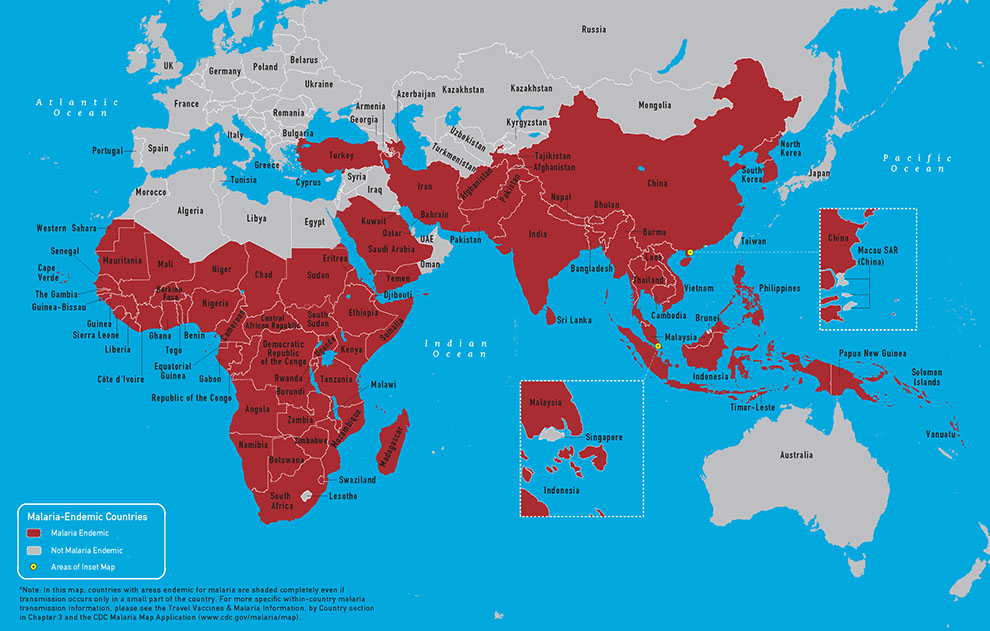Email enquiries@travel-doc.com
Email enquiries@travel-doc.com
Malaria is widespread in many tropical and subtropical countries and is a serious and sometimes fatal disease. You cannot be vaccinated against malaria, but you can protect yourself in three ways.
Malaria is caused by a type of parasite known as plasmodium.
There are many different types of plasmodia parasites, but only five cause malaria in humans.
The plasmodium parasite is mainly spread by female Anopheles mosquitoes, which predominantly bite at night. When an infected mosquito bites a human, it passes the parasites into the bloodstream.
Malaria can also be spread through blood transfusions and the sharing of needles, but this is very rare.
Mosquitoes cause much inconvenience because of local reactions to the bites themselves and from the infections they transmit. Mosquitoes spread malaria, yellow fever, dengue and Japanese encephalitis.
Mosquitoes bite at any time of day but most bites occur in the evening. Precautions to Take:
Malaria Prophylaxis ©CDC
Back to Top